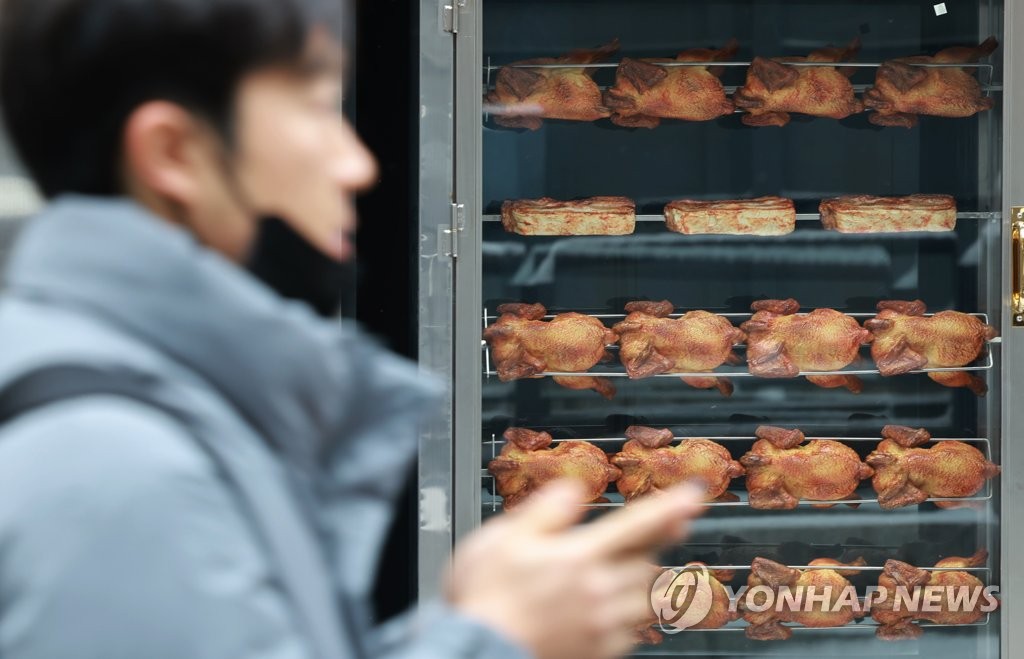- California Assembly OKs highest minimum wage in nation
- S. Korea unveils first graphic cigarette warnings
- US joins with South Korea, Japan in bid to deter North Korea
- LPGA golfer Chun In-gee finally back in action
- S. Korea won’t be top seed in final World Cup qualification round
- US men’s soccer misses 2nd straight Olympics
- US back on track in qualifying with 4-0 win over Guatemala
- High-intensity workout injuries spawn cottage industry
- CDC expands range of Zika mosquitoes into parts of Northeast
- Who knew? ‘The Walking Dead’ is helping families connect
Nat’l consumer inflation up 5.3 pct in Q4
South Korea’s nationwide consumer prices soared 5.3 percent on-year in the fourth quarter due to higher utility bills and food costs, data showed Monday.
The figure, however, marked a slight slowdown from the 5.9 percent on-year growth tallied a quarter earlier, according to the data from Statistics Korea.
The increase was largely attributable to higher electricity, gas and water bills, which advanced 23.1 percent on-year in the October-December period.
Prices of dining out and processed food also jumped 8.6 percent and 9.7 percent, respectively.
By region, consumer prices climbed 5.9 percent in Gangwon Province, followed by North and South Chungcheong Province with 5.9 percent and 5.8 percent, respectively.
Prices in Seoul went up 4.9 percent, and those in the southeastern port city of Busan gained 5 percent over the period.
Retail sales nationwide, meanwhile, fell 1.8 percent on-year due to the weak performances of specialized shops and unmanned stores, the data also showed.
Sales in Seoul and the southern resort island of Jeju dipped 5 percent and 5.1 percent, respectively, due to the weaker performance of duty-free shops.
Those in South Gyeongsang Province and Incheon, 27 kilometers west of the capital city, increased 5.8 percent and 1.2 percent on-year, respectively, in the fourth quarter on stronger sales from gas stations.
The national mining and manufacturing output retreated 4.1 percent over the period due to sluggish data from electronic parts and chemical industries.
The southeastern port city of Busan saw its output jump 14 percent on-year on the back of automobile production. Seoul, on the other hand, saw its output retreat 11.8 percent over the period.
The national employment rate reached 62.3 percent in the third quarter, up 1.2 percentage points from a year earlier.
For all of 2022, nationwide consumer prices moved up 5.1 percent on-year. Retail sales added 0.2 percent, and the mining and manufacturing output increased 1.4 percent, the data showed.












